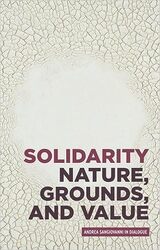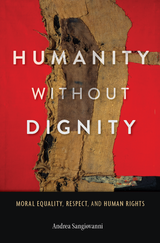
My most recent book is a monograph, entitled Solidarity: Nature, Grounds, and Value (Manchester University Press, 2024, available OpenAccess www.manchesterhive.com/display/9781526172693/9781526172693.xml), which also includes five critical essays by Catherine Lu, Sally Scholz, Rainer Forst, Avery Kolers, and Jared Holley. I argue that solidarity is not a form of fellow-feeling, a synonym of social justice, or a mere disposition to share resources or aid the needy; rather, it is best understood as a kind of joint action. To be in solidarity is to act in solidarity. I also discuss what reasons we might have for acting in solidarity (including the idea of identifying with another on the basis of role, condition, experience, cause, or way of life), and whether and what kind of value acting in solidarity has. Juri Viehoff and I have also edited a volume on solidarity entitled The Virtue of Solidarity (Oxford University Press, forthcoming 2024) with essays by me, Juri Viehoff, Tommie Shelby, Carol Gould, Sally Scholz, Rainer Forst, Philippe Van Parijs, Veronique Munoz-Dardé, Alexander Somek, Avery Kolers, Meghan Clark, and Peggy Kohn.
I am also working on several papers on solidarity and justice within regional and international organizations, such as the European Union. The papers seek to answer questions like the following: On what basis can states within a regional or international organization justifiably exclude non-members who would like to accede? For example, in the EU, non-European states may not accede to the EU. Is the non-European state exclusion rule justifiable? When and why can member states justifiably expel a member? Would it be justifiable, for example, for the EU to expel a member (like Hungary) on the basis that it is no longer a democracy? I am also interested in burden-sharing and social justice within regional organizations, and have recently published (see here) a paper that asks the following question: What standards should govern our assessment of burden-sharing policies regarding refugee processing, housing, and protection in regional organizations like the EU?
Finally, I am working on two papers on conceptual engineering in social and political philosophy (the first on solidarity as a social kind and the second on conceptual engineering and critical theory, which is available here). When two interlocutors disagree about the nature of, for example, solidarity, democracy, gender, human rights, and so on, there is always a risk that disagreement is merely 'verbal'. You say solidarity is one thing, I say it is another. What makes political disagreements genuine and meaningful? It is difficult to explain how this can be possible, especially when people use those terms to pick out very different features of the world. Perhaps conceptual disagreement is disagreement about how to characterize a social kind. Or is disagreement best understood as a metalinguistic negotiation over the best concepts to use in a given context? What other alternatives might there be? What implications does this have for normative theorizing? Is critical theory best understood as a form of conceptual engineering?
These three projects are supported by a 5-year ERC Consolidator Grant entitled Solidarity in Europe. You can find more details about that project here.
Finally, I am working on two papers on conceptual engineering in social and political philosophy (the first on solidarity as a social kind and the second on conceptual engineering and critical theory, which is available here). When two interlocutors disagree about the nature of, for example, solidarity, democracy, gender, human rights, and so on, there is always a risk that disagreement is merely 'verbal'. You say solidarity is one thing, I say it is another. What makes political disagreements genuine and meaningful? It is difficult to explain how this can be possible, especially when people use those terms to pick out very different features of the world. Perhaps conceptual disagreement is disagreement about how to characterize a social kind. Or is disagreement best understood as a metalinguistic negotiation over the best concepts to use in a given context? What other alternatives might there be? What implications does this have for normative theorizing? Is critical theory best understood as a form of conceptual engineering?
These three projects are supported by a 5-year ERC Consolidator Grant entitled Solidarity in Europe. You can find more details about that project here.

I have also written a book entitled Humanity Without Dignity (Harvard University Press, 2017) on the idea of moral equality and its relevance to human rights. Name any valued human trait—intelligence, wit, charm, grace, strength—and you will find an inexhaustible variety and complexity in its expression among individuals. Yet we insist that such diversity does not provide grounds for differential treatment at the most basic level. Whatever merit, blame, praise, love, or hate we receive as beings with a particular past and a particular constitution, we are always and everywhere due equal respect merely as persons. But why? Most who attempt to answer this question appeal to the idea that all human beings possess an intrinsic dignity and worth—grounded in our capacities, for example, to reason, reflect, or love—that raises us up in the order of nature. I reject this predominant view. To understand our commitment to basic equality, I argue that we must begin with a consideration not of equality but of inequality. Rather than search for a chimerical value-bestowing capacity possessed to an equal extent by each one of us, we ought to ask: Why and when is it wrong to treat others as inferior? For two symposia on the book, see here and here, and see also this article in Die Zeit. I have continued to write on themes relevant to the book in 'Are We of Equal Moral Worth?' and 'Is There a Thing Called Moral Equality? (And Does It Matter if There Isn’t?)' (see publications for citations).